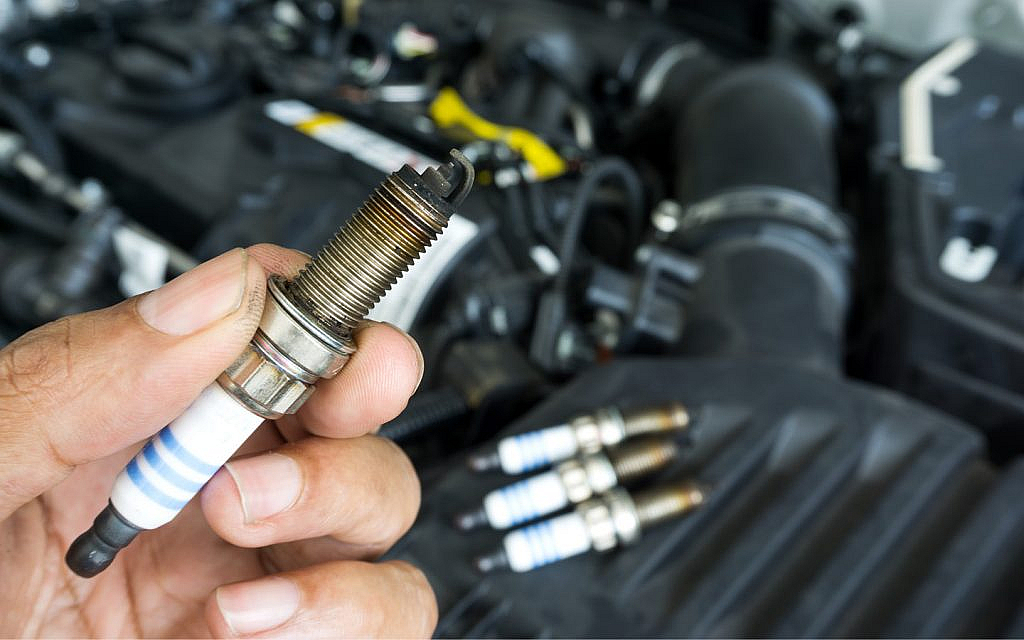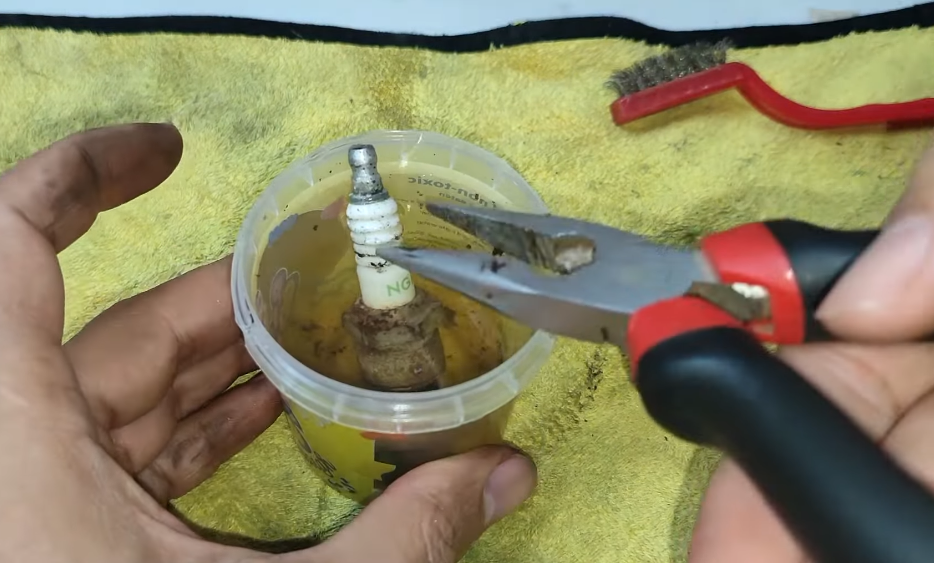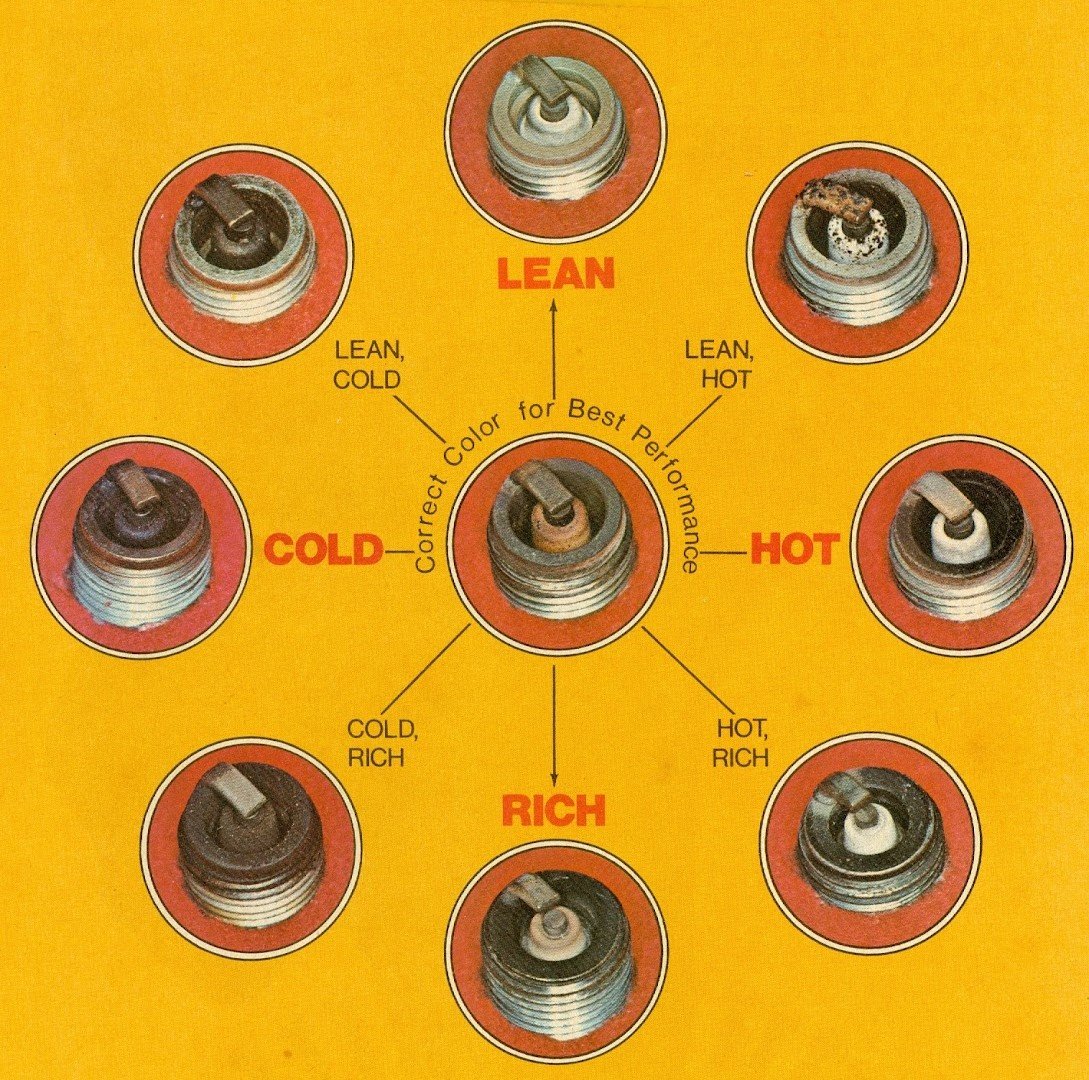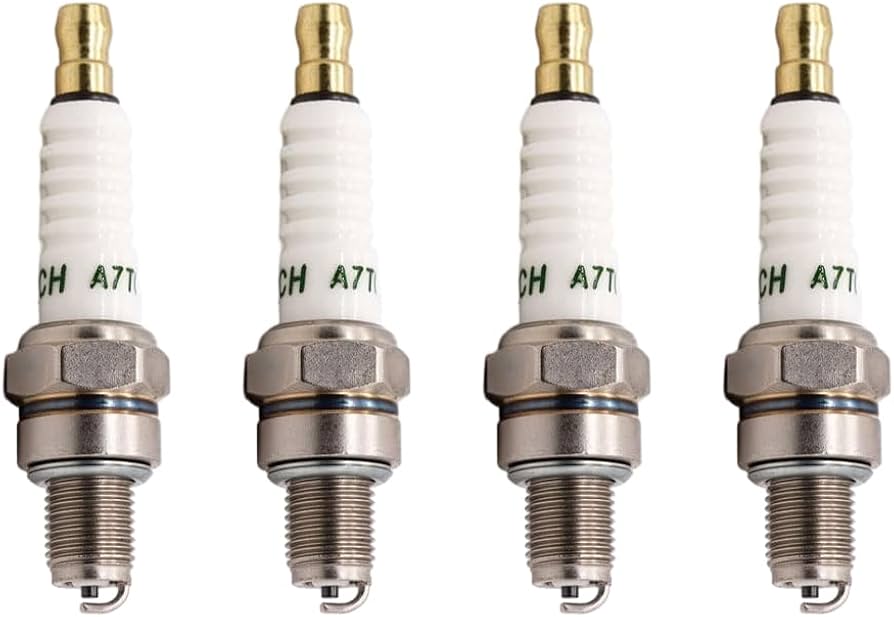“Side of spark plugs sound like shocking” typically occurs due to electrical arcing or a misfire, where the electrical current intended for the spark plug jumps to nearby metal surfaces. This issue can lead to engine misfires, reduced performance, and poor fuel efficiency if not addressed promptly.
While driving a car for the first time, or not being an all expert driver, one might hear a weird shocking sound near the spak plug part of the engine, and think that something might be wrong with the car. But the same sound, although strange, could mean something else. More often than not, it signals something that’s more serious, like “electrical arcing” or “engine misfire.” These issues, if ignored, could lead to intricate issues with the engine and cause the car to break down. This same guide is intended to explain “shocking” sounds near spark plugs.
The guide hopes to explain the symptoms and the ways of diagnosing and rectifying the issue in a friendly way to beginners.

Contents
What does it mean when the Side of Spark plugs Sound Like Shocking?
Hearing a spark plug that “shocks” is more of a rough problem, and signifying an issue within the ignition system. In any case, spark plugs serve an important function in the engine of the vehicle, because they serve the purpose of lighting the charge of air and fuel within the combustion chamber. A system malfunction that occurs in a spark plug will normally be signaled with the “shocking” or “popping” sound.
The words ‘shocking noise’ means ‘loud unusual sound’ and usually results from an electric short circuit or an arc of some nature. Somesounds are so unusual and scary that some people might want to call it panic or even resembling a pop sound. These sounds comes from spark plugs of the engine and indicates the problem of electrical drive of the engine, more precisely problem of the ignition.
Common Causes of Spark Plug “Shocking” Noises
There are many possible fundamental reasons to such alarming sound and how the problem gets resolved in timely manner, determines the performance of the engine.
1. Electric arcs
Electrocution of a person by a plug is in most cases not exactly a favourable construct, however there are some situations wherein a low voltage spark that originates and travels along the wires and ignores a couple of plugs, on more it seems comes into existence because the wires are absolutely and utterly tortured, and are being specially subjected to some sort of strain construct.
It isn’t uncommon for the “arc” in question to produce a sound akin to a mini electrical shock. With the sound, you might have some misfires, slow engine acceleration, or worse – engine stalling. All of these will add onto the already tangible feelings of reduced performance and fuel economy.
Corrective Action: Spark plug wires and the boots should be routinely checked for cracks, wear, or corrosion. Any portion of a faulty wiring loom should be changed without hesitation.
2. Loose or Damaged Spark Plugs
A loose plug is able to permit a portion of discordant engine noise to be poorly coupled to one or more discordant mechanical noises. A loose plug that is not properly secured will make the ‘shocking’ sound of the plug as it contacts metal parts. This is common to older motor vehicles, or other vehicles that have not undergone routine servicing of the spark plugs.
What to do: When the worn spark plugs are replaced, it would avoid persistent ignition problems and allow the system to work in order. If the vehicle has a coil-minus configuration, each ignition coil can be checked and replaced if faulty and used independently. Replacement of each faulty part is necessary, or else the vehicle risk perforating more of the ignition system. However, lacking attention to the coil wires and the dongle does not excuse the rationalization of the actions.
3. Faulty Ignition Coils
A spark plug fires with the aid of the ignition coil which gives a level of voltage. If the coil in question is able to supply the needed voltage, it becomes defective. Moreover, if there is a low level of voltage across a fully loaded capacitor, the result is to create a stunning level of power that is capped within a bank of super capacitors. This causes a malfunction in the gears and the shocking sounds produced randomly at intervals. The engine, which has been grossly exaggerated, at this point is something that you can use to impress your friends.
What to do: is use a multimeter so that you can have a clearer scope of the ignition coils within the system. Each coil and plug in the coil-on-plug systems can be accessed with no difficulty.
For the sake of family feuds, ignition coils need to be replaced as soon as any plugs are empty or broken.
4. Moisture or Contamination
Moisture, oil, or other ignitable contaminants in the vicinity of the spark plugs as well as the ignition system, are some possible blockades to the circulation of electric current. More so, if water or oil infiltrates the ignition compartment of the spark plugs, it leads to a short circuit, which in turn leads to popping or shocking sounds and in some extreme cases, causes the engine to misfire.
Users in tropical climates or those who wash the engine, and subsequently, water, start to wash the engine, and subsequently, water penetrates the ignition system, are increasingly vulnerable to these problems.
What to do: To start, as a standard procedure, do your best to clean the area surrounding the spark plugs. More particularly, and more importantly, clean other components of the ignition system in order to ensure that moisture, oil, water, or dirt does not hover in those areas. More so, in the event the engine is to be utilized in a humid climate, it is best to always cover it post operation. In addition, it is suggested to purchase moisture-repellant spark plug wires.
Identifying the ‘Shock’ Sounds from Spark Plugs
Spark plugs should not be shocking. If they are, then their issue should be diagnosed and repaired immediately to prevent any issues from developing with the engine. The following should assist you in conducting a diagnosis:
Step 1: Shut the Engine Off
To begin diagnosing the issue, the first step is to turn off the engine completely. You need to give the engine a sufficient amount of time to cool so you don’t injure yourself trying to inspect the relevant components.
Step 2: Inspect Spark Plug Wires and Boots
Look for burned, corroded, or cracked wires where wires, fro example, touch the engine block and, or other metal surfaces. Any wires and their connections from the spark plug wires to the engine block and other more metal surfaces wires need immediate assistance.
Step 3: Tighten Up the Tension on the Spark Plug
An improperly turned spark plug causes electric arcs and generates a loud, startling noise. A spark plug not correctly seated means the spark plug, does, together with the right cap, under the correct limit of slack, the proper torque wrench calibrated to the manufacturer’s specs.
Step 4: Examine the Ignition Coils
If there are individually controlled ignition coils for each spark plug, individually check the coils for any damage. Ignition coils wear out and lose adequate spark generating power. In that case, the ohmmeter needs to be on those coils to test inline resistance. Defunct coils, the ones that need to be swapped out, have no resistance.
Step 5 : Check Surrounding Area of Spark Plug
It is important to assess the area around the spark plugs is clear of water, oil, and dirt. If water is not cleaned around the spark area ignition is impossible and leads to the startling noise. If the area is particularly dirty, it is best to systematically use some compressed air and a clean cloth.
Step 6 : Replace spark plugs If needed
Ensure the new plugs are installed and gapped appropriately to the specifications of the vehicle, as well as the previous plugs.
Ways to Reduce Spark Plug Noise
While some causes of spark plug noise cannot be avoided, a large portion of them can be avoided with suitable ongoing upkeep. This article will cover the methods to help you steer clear of spark plug problems, as well as the scary noise that accompanies it.
Inspection: A regular visual check of the spark plugs and ignition leads, as well as the coils, is advisable. If this process is performed around the 30,000 – 50,000 mile mark, issues will be resolved sooner rather than later.
Use High-Quality Parts: Never compromise your work’s reputation by using substandard parts. Spark plugs and wires should always be replaced with high grade, OEM parts.
Installation: All the spark plugs must be placed and secured properly. If for any reason the spark plugs are installed improperly, it could result in severe electrical or engine issues.
Moisture Prevention: There are few parts of an ignition systems as resistant to moisture as electrically insulated boots. But most boots on spark plugs won’t be accepted without seals designed to stop water ingress. Moisture is an enemy of all electrical systems, as is ignition arcing. These systems are delicate, as described, for a reason.
Keep the Engine Clean: There is more than one way to skin an engine, and engineered bits and ignition systems are an exception to the cleaning rule. The same way we clean ourselves is by no way the technique to be used. For example, gathering water, plunging a stick and then the scrubbing brush into the engine, as well as the question of what the spark plugs used, is no way to approach this.
We do not want the mess that is the byproduct of we do not wish to displace water and other cleaning substances. This cleaning process indeed spawns disturbance upon components that help ignite the engine.
When it’s Time to Call a Mechanic
A point arrives after which all one does is grasp the steps to mend the issue with the clanging volume, and the while uncommunicate stick to the issue and the mechanic is the one to be spoken to. Always does the issues with spark plugs, ignition coils, and wires that tend to trouble you.
The payment provides access to the other worlds. Pay and specialized tools and knowledge will be provided to you the fix.
1: Can I drive my car if the spark plugs are making a shocking noise?
It’s advisable not to drive the car if the spark plugs are making a shocking sound. Continuing to drive with electrical arcing or misfires can lead to further damage to your vehicle’s engine, including reduced performance and fuel efficiency.
2: How often should I replace my spark plugs?
Spark plugs should typically be replaced every 30,000 to 50,000 miles, depending on the make and model of your vehicle. However, it’s important to refer to your vehicle’s manual for the manufacturer’s recommended interval.
3: What are the signs of a failing ignition coil?
Symptoms of a failing ignition coil include engine misfires, poor acceleration, difficulty starting the vehicle, and unusual engine noises. If your car’s engine struggles to start or idles roughly, a faulty ignition coil could be the cause.
4: Are problems with the electrical environment at all a concern to the spark plugs?
High humidity, rain, and other forms of moisture have indeed been some of the environmental factors that can cause problems with spark plugs that can be a major hassle. Then, there also plenty of electrical currents to lead to the shocking sounds and misfires.
5: Should I attempt to replace spark plugs myself?
For some, replacing spark plugs is possible on your own, if only given the right set of tools and a few basic automotive knowledge. Otherwise, a mechanique is the way to go.
Conclusion
The phenomenon of spark plugs hearing itself ‘shock’ the ignition system is quite peculiar. It is as if hearing that a voicemail was sent to let the system know to pay special attention to the ignition system and the way the vehicle starts. There are quite a handful of possible reasons to explain this: electrical arcing, loose spark plugs, damaged ignition coils, and even some residue. Understanding what is happening is crucial to help protect the engine from unnecessary stress and maintain balance.
This can only be achieved with thorough investigations and examinations.
If you bay the car bay, and your car runs well, then for you a mechanic, you might need a specialized mechanic for your issue.





